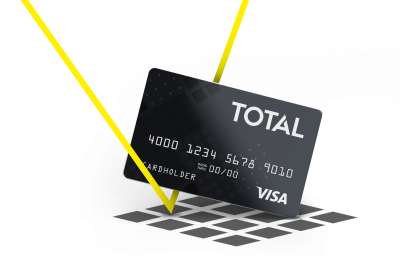Your credit score has a big impact on your financial options. Looking to rent a house? The landlord may require a certain score. Financing a big purchase like a car? Your credit score could affect your interest rate. With the importance of this single number in mind, what are five credit mistakes that you should never make?

- Late Payments
This is one of the worst credit mistakes to make. Even a single late payment may cause a large dip in your credit score. A late payment lingers on your credit report for up to 7 years! The good news is that late payments on loans and credit cards are usually only reported to the credit bureaus only if you miss the due date by 30 days or more. So, if you bring your account current before the 30-day mark, you won’t see a ding in your credit score. But even being one day late can result in fees and penalties – so it’s best to be in the habit of paying on time. Don’t be afraid to call your credit card company if you have questions – they can definitely tell you what you’ll face, and sometimes they even have tools at their disposal you wouldn’t know about otherwise.
- Maxing out your credit cards
The idea of maxing out a credit card might bring to mind an image of someone with arms loaded full of shopping bags at the mall. However, reasons for maxing out a credit card aren’t limited to irresponsible spending. You might find yourself nearing your credit limit if your credit card has a low limit. Even if your credit limit is less than $1000, it will still impact your credit score if you’re using too high of a percentage of the total limit. Why? It increases your debt-to-credit ratio – the amount of credit you’re using, compared to the amount of credit extended to you. Typically, you should keep this below 30%, meaning you’re using less than 30% of the total amount of credit available.
- Forgetting (or failing) to pay a bill
When you are over 120 days late in paying a bill, it is usually sent to collections. This means that the original creditor has given the debt to an agency to collect. Delinquent credit card debt, unpaid utility bills, mortgages, auto loans, and student loans are some debts that can be passed on to a collection agency. After a debt is turned over to a collection agency, it can take some time to appear on a credit report. When it does show up, it will certainly have a negative impact on your credit score – and remain on your credit report for 7 years.
- Pay the minimum credit card payment
Some credit cards are designed with a specific user in mind, like a business owner. These might have additional requirements or fees, but they also may have specific benefits or rewards that help you specifically. For example, a business credit card might have an unusually high credit limit, better purchase or fraud protection, or higher credit card rewards at office supply stores.
- Failing to check your credit
Monitoring your own credit is a great way to see credit progress and to also spot any potential errors or issues. Checking your own credit score is considered a soft pull and does not impact your credit score. Your bank or credit card company may offer credit monitoring, which means that you can easily see your credit score, but you are also entitled to a free credit report per year. When you are familiar with your own report, you might also identify areas where you can make an impact on your credit score. For example, maybe you were going to close that old credit card that you rarely use. Looking at your report, you realize it is your oldest account, so the better option for your credit score is to keep it open and in periodic use.

